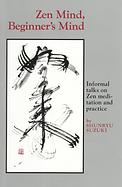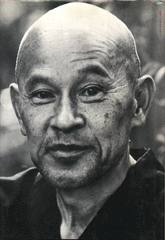PART THREE RIGHT UNDERSTANDING 第三部 正確理解
“Our understanding of Buddhism is not just an intellectual understanding. True understanding is actual practice itself.”
我們對佛法的了解不應該只是知識上的理解,真正的了解,在於實際的修行本身(行、証)。



3.1 Zaren is not for enlightenment 坐禪不是為了開悟
We emphasize practice. We need a strong confidence in our teaching.
我們強調的是修行,要對教法及所修法門,有堅強的信心。只要你開始坐禪,開悟自然就在其中。
“Sudden enlightenment” is Enlightenment comes all of a sudden to us. Whether you practice zazen or not, you have Buddha nature in you. Because you have it, there is enlightenment in your practice. The points we emphasize are not the stage we attain, but the strong confidence we have in our original nature and the sincerity of our practice. “頓悟”是開悟的突然而至。不管你坐禪與否,佛性是人人本具。因為你本具佛性,所以你的修行中,自會有開悟。(有如播種,只要種下種子,就會發芽、成長, 開花結果)。我們強調的並不是所達到的境界,而是對我們真實本性的強烈信心和修行的真誠。(信為道元功德之母。)
Our human nature is without ego. When we have no idea of ego, we have Buddha’s view of life. Our egoistic ideas are delusion, covering our Buddha nature. Our life becomes completely occupied by egocentered ideas. This is called karmic life, or karma.
我們的本性是沒有自我的。當我們去除了“自我”的觀念,我們就能以佛的眼看人生。“自我”的觀念只是妄想,會覆蓋我們的佛性。我們的人生完全被各種自我中心的觀念所充塞,這樣的人生稱為 “業命” 或 “因果報應”。
The purpose of our practice is to cut off the karmic spinning mind. If you are trying to attain enlightenment, that is a part of karma, you are creating and being driven by karma. More important than any stage which you will attain is your sincerity, your right effort. When we believe in our way firmly, we have already attained enlightenmeant. 修行的目的在於去除輪迴心。如果你刻意追求開悟,就會造業,並為其所驅策。比追求所達境界更重要的是:你修行的真誠心與正確的努力 (正精進)。當我們堅定相信我們的道路,那我們就已開悟。
We do not slight the idea of attaining enlightenment, but the most important thing is this moment, not some day in the future. We have to make our effort in this moment. Bodhidharma discovered that it was a mistake to create some lofty or deep idea and then try to attain it by the practice of zazen. 我們並不輕視開悟的觀念,但最重要的是當下,而非未來的某一天。我們應該在當下做出努力。達摩發現,創造某種崇高理想,然後試圖透過坐禪去達到這種理想,這是錯誤的觀念。
Not by reading or contemplation of philosophy, but only through actual practice, can we understand what Buddhismi is. Constantly, we should practice zarzen, with strong confidence in our true nature,
唯有透過實際修行,而非透過閱讀哲學或沉思,才能了解佛法是什麼。我們應該持續不斷地禪修,對自己的真實本性,有堅強的信心。
3.2 TRANSIENCY 接受無常
The basic teaching of Buddhism is transiency, or change. This teaching is also understood as the teaching of selflessness. The self-nature of each existence is nothing but change itself. There is no special, separate self-nature for each existence.
佛教的基本教法是“無常”或 “剎那變化”。這教法也可以理解為無我的教法。每一存在的自性無非就是變化本身。每一種存在的東西本身並無單獨、分立的自性可言。(凡所有相,都是虛幻。) 我們應該致力在不完美的存在中找到完美的存在。
We do not seek for something besides ourselves. We should find the truth in this world, through our difficulties, through our suffering. Pleasure is not different from difficulty. Good is not different from bad. They are two sides of one coin. So enlightenment should be in practice.
我們不該尋覓某些在我們身外之物。我們應該透過我們的煩惱、磨難,找到真理。快樂無異於煩惱,善無異於惡,它們是一體的兩面,所以開悟不在別處,開悟就在修行之中。
To find pleasure in suffering is the only way to accept the truth of transiency. When you are in trouble, it is quite easy to accept the teaching. So why not accept it at other times? It is the same thing. 接受“無常”的唯一辦法,是在痛苦中尋找快樂。當你身處煩惱之中,要接受無常的教法就會很容易。既然如此,為什麼你不在別的時候也接受無常呢?
3.3 THE QUALITY OF BEING 那一下電閃
”When you do something, if you fix your mind on the activity with some confidence, the quality of your state of mind is the activity itself. When you are concentrated on the quality of your being, you are prepared for the activity.”
只要你能夠有信心,全神貫注在你所做的事上,那麼,你心靈狀態的本質就是活動的本身。當你專注於你存在的本質,你就為活動做好了預備工夫
The purpose of zazen is to attain the freedom of our being, physically and mentally. According to Dogen-zenji, every existence is a flashing into the vast phenomenal world. 坐禪的目的在於達到身心兩方面的存在自由。道元禪師認為:“萬物無非是浩瀚表象世界的一下電閃。”
We say, “In calmness there should be activity; in activity there should be calmness.” Actually, they are the same thing. There is harmony in our activity, and where there is harmony there is calnmess. This harmony is the quality of being.
我們常說:“靜中有動,動中有靜。”實際上,“動”與“靜”是同樣的—回事。活動中自有和諧,有和諧處就有“靜”。這和諧就是存在的本質,
When we sit, we feel very calm and serene, but actually we do not know what kind of activity is going on inside our being. There is complete harmony in the activity of our physical system, so we feel the calmness in it. 當我們打坐時,我們會感到非常平靜與安祥。但實際上,我們感覺不到有什麼活動在我們的“存在”之中進行。這是因為我們身體系統內部的活動,達到了完全的和諧,我們才會感到內心的平靜。
When you do something, if you fix your mind on the activity with some confidence, the quality of your state of mind is the activity itself. When you are concentrated on the quality of your being, you are prepared for the activity. When we do zazen, the quality of our calm, steady, serene sitting is the quality of the immense activity of being itself.
當你從事某個活動,只要你的心能夠專注,且保有信心,那麼,你心靈狀態的本質就是活動的本身。當你專注於你存在的本質,你就為活動做好了預備工夫。當我們坐禪時,平靜,穩定,寧靜的本質就是存在的大活動本身。
“Everything is just a flashing into the vast phenomenal world”. Within this moment, this temporal existence does not change, does not move, and is always independent from other existences. Strictly speaking, there is no connection between I-myself yesterday, and I-myself in this moment. “萬物無非只是浩瀚表象世界的一下電閃”。在這個剎那,短暫的存在不會改變、不會移動,且總是獨立於其他的存在之外。嚴格來說,昨天的你和當下這個你是沒有關聯性的。(物不遷)
A wonderful painting is the result of the feeling in your fingers. If you have the feeling of the thickness of the ink in your brush, the painting is already there before you paint. When you dip your brush into the ink you already know the result of your drawing, or else you cannot paint. So before you do something, “being” is there, the result is there.
一幅傑出的畫作是你手指觸感的結果。當你能感受到筆尖墨汁的濃度時,這幅畫在你畫之前就已經“畫好了”。在你把毛筆沾上墨汁的時候,除非你已經知道繪畫的結果,否則你是什麼都畫不出來的。所以當你做什麼之前,“存在”就已經在其中,結果也已在其中。
Even though you look as if you were sitting quietly, all your activity, past and present, is included; and the result of your sitting is also already there. All results of your practice are included in your sitting. 哪怕你看起來是靜靜地打坐,但你的所有活動(包括過去與現在的活動)都已經在其中,而打坐的結果也已經在其中。所以,你所有的修行結果都是盡在你的打坐之中。(因中有果,果中有因。)
3.4 NATURALNESS 順應自然
Nature is some feeling of being independent from everything, or some activity which is based on nothingness. Something which comes out of nothingness is naturalness, like a seed or plant coming out of the ground. 自然是某種獨立於一切的感覺,是某種基於“無”的活動。來自“無”的東西就是自然,例如從土地裡發芽長出來的植物。
The seed has no idea of being some particular plant, but it has its own form and is in perfect harmony with the ground, with its surroundings. As it grows, in the course of time it expresses its nature. Whatever it is, it has some form and color, and that form and color are in perfect harmony with other beings.
種子並沒有“要長成為一棵植物”的觀念,但種子卻擁有自己的形相,且與土地以及其四周環境處於完全和諧的狀態。隨著它的成長,假以時日,種子就會把自己的本性表現出來。不管什麼東西都會有它的色與相,而這色與相是與其他的存在的事物完全和諧的。
Your mind is entangled with some other idea, someone else’s idea, and you are not independent, not yourself, and not natural. If it comes out of nothingness, whatever you do is natural, and that is true activity. 如果你的心被某些別的觀念或別人的觀念給糾纏住了,你就不是獨立的,不是你自己,也不是自然的。不管你做什麼,只要那是從“無”所出,就都會是真實的活動。(就如無為,有感斯應。先天一炁,從虛無中來。)
When what you do just comes out from nothingness, you have quite a new feeling. True being comes out of nothingness, moment after moment. Nothingness is always there, and from it everything appears. 當你所做的事是來自“無”,你就會有—種新鮮感。真正的存在是從“無”而來,剎那接著剎那的來。“無”總是在那裡,萬物從無中湧現。
For instance, when you listen to a lecture, you should not have any idea of yourself. You should not have your own idea when you listen to someone. Forget what you have in your mind and just listen to what he says. To have nothing in your mind, then you will understand what he says. When you do something, you should be completely involved in it. You should devote yourself to it completely. Then you have nothing.
例如,當你在聽講時,不應該有任何自我的觀念。你要忘掉自己的想法,只是聆聽對方說話。讓你的心保持“無”的狀態,這樣你才會明白對方所說的話。你做任何事情時,都應該全心投人,你應該完全奉獻向己,這樣你就會得到“無”。
If you want to study Zen, you should forget all your previous ideas and just practice zazen. That is naturalness. This attitude is called “soft or flexible mind”, means a smooth, natural mind. When all you do comes out of nothingness, then you have everything.
如果你想了解禪,就應該丟掉你的一切成見,只管坐禪,這就是自然。這樣的態度稱為“柔軟心”。“柔軟心”就是一顆柔順、自然的心。如果你所做的一切都是出自“無”,你就會擁有一切。
3.5 EMPTINESS 專注於“無”
If you want to understand Buddhism, it is necessary for you to forget all about your preconceived ideas. To begin with, you must give up the Idea of substantiality or existence. The Buddhist understanding of life includes both existence and non-existence. True existence comes from emptiness and goes back again into emptiness. What appears from emptiness is true existence. We have to go through the gate of emptiness.想要了解佛法,你必須先忘掉所有先入為主之見。首先,你必須拋棄實體性或實有的觀念。佛法對生命的認識是,它既存在。亦不存在。真正的存在來自空性,並又回歸到空性。從空性中出現的存在才是真實的存在。我們必須穿過空性之門。
As long as we have some definite idea about or some hope in the future, we cannot really be serious with the moment that exists right now. You may say, “I can do it tomorrow, or next year,” believing that something that exists today will exist tomorrow. But there is no certain way that exists permanently. Moment after moment we have to find our own way.
只要我們對未來有一些明確的觀念或期望,我們就無法以嚴肅的態度面對當下的存在。我們常說:“這件事情我明天或明年再來做吧!”。我們說這樣的話,是因為相信存在於今天的東西會繼續存在於明天。但是根本沒有某種固定永久存在的方式。剎那接著剎那,我們都得找出自己的道路。
Each one of us must make his own true way. When we do so, the way will express the universal way. When you understand one thing through and through, you understand everything.
我們每一個人都必須開拓出一條屬於自己的道路。如此,我們開拓出的道路,就會是一條遍通一切的道路。當你把一件事情徹底弄明白之後,你就會了解一切。(一通一切通) 。
When you try to understand everything, you will not understand anything. The best way is to understand yourself, and then you will understand everything. True understanding will come out of emptiness. 如果你試圖同時了解一切,這樣你反而什麼都不會了解。最好的方法是先了解你自己,了解自己之後,你就會了解一切。真正的了解來自空性。
When you study Buddhism, you should have a general house cleaning of your mind. You must take everything out of your room and clean it thoroughly. If it is necessary, you may bring everything back in again. You may want many things, so one by one you can bring them back. But if they are not necessary, there is no need to keep them.
研究佛法之前,你應該對自己的心來一次大掃除。你必須把所有東西從房間裡搬出來,把房間徹底清掃一遍。如果有必要,把房間打掃乾淨之後,你可以把所有東西再搬回去。你也許用得著許多東西,所以不妨把它們一件件放回去。但如果其中有用不著的東西,那就沒有保留的必要,否則的話,你的房間就會堆滿破舊、沒用的垃圾。
We say, “Step by step,I stop the sound of the murmuring brook.” When you walk along the brook, you will hear the water running. The sound is continuous, but you must be able to stop it, if you want to stop it. This is freedom; this is renunciation.
我們說:“一步接一步,我停息了小溪喃喃的水流聲。”當你沿著小溪而行,自然會聽到水流聲。水聲是連續不斷的,但只要你想要讓水聲停息下來,就必然可以做到。這就是自由,這就是放棄 (斷念)。
One after another you will have various thoughts in your mind, but if you want to stop your thinking you can. So when you are able to stop the sound of the murmuring brook, you will appreciate the feeling of your work. But as long as you have some fixed idea or are caught by some habitual way of doing things, you cannot appreciate things in their true sense.
一個又一個雜念,會在你心裡生起,但只要你想要將之停息,就一定可以做得到。當你能夠停息小溪喃喃的水流聲,你就能充分欣賞周遭的事物,但只要你還被一些成見或習性困住,就無法如實地以萬物的本然面貌去欣賞它們。
If you seek for freedom, you cannot find it. Absolute freedom itself is necessary before you can acquire absolute freedom. That is our practice. Concentration is not to try hard to watch something. You should be concentrated on nothing.
如果你刻意去追尋自由,就不會找得到自由。在得到絕對的自由之前,你必須先擁有絕對的自由,這就是我們的修行。專注不是死命盯住一樣東西。你應該專注於“無”。
3.6 The moment of a thought 當下的一念
In Prajna Paramita Sutra,the most important idea is emptiness. Before we understand the idea of emptiness, everything seems to exist substantially. But after we realize the emptiness of things, everything becomes real—not substantial. When we realize that everything we see is a part of emptiness, we can have no attachment to any existence; we realize that everything is just a tentative form and color.
《心經》中最重要的觀念是空性。在我們尚未了解空性的觀念之前,一切在我們看來都是實有。但我們了解到事物的空性以後,一切就會變得真實,但不是實有。了解到一切都只是空性的一部分,我們就不會執著於任何實有。我們會了解,一切都只是權宜性的色相。
This sutra says, “Bodhisattva Avalokitesvara observes that everything is emptiness, thus he forsakes all suffering.” It was not after he realized this truth that he overcame suffering. Realization of the truth is salvation itself. To realize the truth is to live—to exist here and now.
《心經》說:”觀自在菩薩,行深般若波羅蜜多時,照見五蘊皆空,度一切苦厄。” 菩薩不是在體會了五蘊皆空之後,才解脫一切苦難的。體會這個真理就是解脫本身。了解這真理不外乎就是活著—活在當下,活在此時此地。
You cannot practice true zazen, because you practice it; if you do not, then there is enlightenment. If the combination of practice and you is zazen, it is the zazen of a frog.
刻意的禪修,不是真正的修行。如果你沒有刻意去修行,那麼開悟自然在其中。當你能把自己與坐禪合而為一,那就會是青蛙的坐禪。
One whole being is not an accumulation of everything. It is impossible to divide one whole existence into parts. It is always here and always working. This is enlightenment.
整體的存在不是萬物的總和。整體是不可切割的,它總是存在當下,在作用,明白這個道理,就是開悟了。
The important thing in our understanding is to have a smooth, free-thinking way of observation. We have to think and to observe things without stagnation. We should accept things as they are without difficulty. Our mind should be soft and open enough to understand things as they are.
思維或觀察事物時,我們應該心無掛礙。我們應該如實地以萬物的本然面貌接受它們,一點也不能勉強。我們的心應該是柔軟、開放的,如此才能理解事物的實相。
When our thinking is soft, it is called imperturbable thinking. It is called mindfulness.Whether you have an object or not, your mind should be stable and your mind should not be divided. This is zazen. 當我們的思維夠柔軟,就稱為“冷静、沉著的思維”,這是“正念”。不管有沒有一個對象,你的心都應該穩定而不散亂,這就是坐禪。
We just think with our whole mind, and see things as they are without any effort. Just to be ready to see things with our whole mind, is zazen practice. Wisdom is the readiness of the mind. Wisdom is something which will come out of your mindfulness.
我們只應該用整個心來思維,不費力氣地以萬物本然面貌來看待它們。就只是準備好用全心去看,這就是禪修。心的念茲在茲,就是智慧。智慧不是某種學習得來的東西。智慧是從你的“正念”生發出來的。
3.7 Believe in creating something from nothing 相信“無中生有”
We have to believe in something which has no form and no color—something which exists before all forms and colors appear.
我們必須要去相信某種無色無相的東西—某種存在於任何色與相出現之前的東西。
If you are always prepared for accepting everything we see as something appearing from emptiness, then at that moment you will have perfect composure. It is absolutely necessary for everyone to believe in nothing. There is something which is always prepared for taking some particular form, and it has some rules, or theory, or truth in its activity.
如果你總是準備好把一切看成是從“無”顯現,那麼,你將可獲得完全的從容自若。所以,每個人都絕對有必要相信“無”。這“無”是某種隨時準備好披上特定形相的東西,而在其活動中具有某些規則、理論或是真理。
While you are practicing zazen, you may hear the rain dropping from the roof in the dark. Later, the wonderful mist will be coming through the big trees, and still later when people start to work, they will see the beautiful mountains. If we accept ourselves as the embodiment of the truth, or Buddha nature, we will think, “Now it is raining, but we don’t know what will happen in the next moment. By the time we go out it may be a beautiful day, or a stormy day. Since we don’t know, let’s appreciate the sound of the rain now.” This kind of attitude is the right attitude. If you understand yourself as a temporal embodiment of the truth, you will have no difficulty whatsoever.
坐禪時,你也許會聽到雨水打在屋頂上的聲音。稍後,美妙的雲霧會升起,繚繞於一棵棵大樹之間;再稍後,人們會出門工作,抬眼看見美麗的山脈。如果你相信自己是真理,是佛性的體現者,你會這樣想:“現在在下雨,但不知道下一刻會是什麼光景。到我們要出門時,說不定又是晴光麗日,也說不定狂風暴雨。既然我們不知道接下來會發生什麼,此刻,就讓我們去欣賞雨聲吧!”這種態度才是正確的態度。如果你了解到,自己只是真理的暫時體現者,就不會再有任何煩惱。
We should begin with enlightenment and proceed to practice, and then to thinking. Usually thinking is rather self-centered. In our everyday life our thinking is ninety-nine percent self-centered: “Why do I have suffering? Why do I have trouble? If enlightenment comes first, before thinking, before practice, your thinking and your practice will not be self-centered .
我們應該先獲得開悟 (先解悟,再修行証悟),進而修行,再進而思考。我們的思考通常都是很自我中心的,在日常生活中,我們的思考百分之九十九都是自我中心的。“為什麼我要受這種苦?為什麼我要碰到這種麻煩?”如果能夠把開悟放在你的修行或思考前面,你的修行或思考就不會是自我中心的。
3.8 ATTACHMENT, NON-ATTACHMENT 執著與不執著
Zazen practice and everyday activity is one thing. In activity there should be calmness, and in calmness there should be activity. Calmness and activity are not different.
禪修與日常生活是同樣的一件事。動中應該有靜,靜中應該有動,動與靜無異。
Each existence depends on something else. Strictly speaking, there are no separate individual existences. Oneness and variety are the same thing, so oneness should be appreciated in each existence. We should find the reality in each moment, and in each phenomenon.
每個存在都依賴於另一個存在,嚴格來說,沒有分離的個體存在。“一”與“多”是同樣的一回事,所以我們應該在每個個體中欣賞其一體性。我們應該在每一個當下、每一個形相裡找到實相。
In love there should be hate, or non-attachment. And in hate there should be love, or acceptance. Love and hate is one thing.
在愛中應該有恨—或曰無執,在恨中應該有愛—或曰接納。愛與恨是同樣的一回事。
Dogen said, “To learn something is to know yourself; to study Buddhism is to study yourself,” To learn something is not to acquire something which you did not know before. You know something before you learn it. All we want to do is to know things just as they are.
道元禪師說:“學習是為了了解你自己,研究佛法是為了研究你自己。”學習什麼不是為了獲得某些你原先不知道的知識,你在還沒有學習那些知識之前,你就已經知道了。我們想做的只是去了解事實真相。
Because we put emphasis on some particular point, we always have trouble. We should accept things just as they are. Emotionally we have many problems, they are something created.
But actually it is not possible to point out anything in particular. Happiness is sorrow; sorrow is happiness. There is happiness in difficulty; difficulty in happiness. 因為我們老是注重事物的某些特點,因此我們有煩惱。我們應以萬物的本然面貌接納它們。在情感上,我們有許多煩惱,這些煩惱是我們自己創造出來的。但實際上,我們沒有必要強調任何特定的東西。快樂就是悲傷,悲傷就是快樂,快樂中有煩惱,煩惱中有快樂。
3.9 CALMNESS 安靜地坐禪
A Zen poem says, “After the wind stops I see a flower falling. Because of the singing bird I find the motmtain calmness.” Before something happens in the realm of calmness, we do not feel the calmness; only when something happens within it do we find the calmness.
有句禪詩云:“風停見花落,鳥鳴覺山靜。”在有事情發生於“靜”中之前,我們不會感覺得到靜的本身。只有當事情發生了,我們才會意識到靜中的靜。
There is a Japanese saying: “For the moon; there is the cloud. For the flower there is the wind.” When we see a part of the moon covered by a cloud, or a tree, or a weed, we feel how round the moon is. But when we see the clear moon without anything covering it, we do not feel that roundness the same way we do when we see it through something else.
日本俗諺云:“有雲見月,有風見花。”當月的一部分被雲朵遮住,我們才會感覺得到月有多麼明亮。若不是透過其他東西的襯托,我們不會意識到月有多圓。
Without light, there is no darkness. Without cold, we do not know the heat! No sickness, we do not know the value of health! No impermanent, we will not cherish the moment!!
没有黑暗也就没有光明。沒有寒冷, 我們不知道炎熱! 沒有生病,我們不知道健康的可貴! 沒有無常的到來,我們不會好好地珍惜當下!!
When you are doing zazen, you are within the complete calmness of your mind; you do not feel anything. You just sit. But the calmness of your sitting will encourage you in your everyday life. So actually you will find the value of Zen in your everyday life, rather than while you sit.
坐禪的時候,你的心會完全靜下來,感受不到任何東西,你只是坐著。但你從打坐中得到的靜,卻會在你的日常生活中發揮激勵作用。所以,你不只會在打坐時感受到禪的價值,在日常生活中也會感受得到。
When you practice zazen, you should just keep your body straight without leaning over or against something. To keep your body straight means not to rely on anything. In this way, physically and mentally, you will obtain complete calmness.
坐禪時,保持身體挺直,不要挨著或靠著什麼東西。保持身體挺直是不依靠著任何東西。就是這樣,身、心兩方面都不依賴任何東西,你就會獲得完全的靜。
Which is more important; to attain enlightenment, or to attain enlightenment before you attain enlightenment; to be successful, or to find some meaning in your effort to be successful?
哪個較為重要呢?是獲得開悟,還是在獲得開悟之前先獲得開悟?是當個成功的人,還是在你追求成功的努力中找出努力本身的意義?
3.10 Dharma is an Experience, not Philosopy 佛法不是哲學,而是一種體驗
To keep our practice in its pure form is our purpose. Those who are attached only to the result of their effort will not have any chance to appreciate it, because the result will never come. But if moment by moment your effort arises from its pure origin, all you do will be good, and you will be satisfied with whatever you do. 讓修行保持在清淨的形式才是我們的目的。那些只是執著於努力的成果的人們,將沒有任何機會去品味,因為成果永遠不會到來。但如果你的努力是一剎那接著一剎那,從你的清淨本源流瀉出來,那麼你做的任何事情都會有益處,而你也會對你所做的任何事情感到滿意。
Zazen practice is the practice in which we resume our pure way of life, beyond any gaining idea, and beyond fame and profit. By practice we just keep our original nature as it is.
用清淨心打坐。禪修的目的是歸復清淨的生活方式,超越一切的得失心以及名利之心。我們修行的目的只是為了保持真實本性的本來面貌。
So just to sit, without any idea of gain, and with the purest intention, to remain as quiet as our original nature—this is our practice. We do not even know what we are doing when we just practice with a pure mind. Zen practice is possible to appreciate our original nature.
所以,只管打坐吧!抱持著最清淨的動機,靜默得一如我們的原初本性,這就是我們應有的修行方式。當我們抱持著一顆清淨心來修行時,我們甚至沒有自覺到自己正在修行。禪修卻讓我們可以品味自己的真實本性。
3.11 ORIGINAL BUDDHISM 真正的佛教徒
Because Buddha was the founder of the teaching, people tentatively called his teaching “Buddhism,” but actually Buddhism is not some particular teaching. Buddhism, is just Truth, which includes various truths in it. Zazen practice is the practice which includes the various activities of life. 因為佛陀是這種教法的開創者,人們才會權宜性地把他的教法稱為“佛法”,但事實上佛法並非某種特定的教法。佛法只是真理本身,而這真理之中又包含著各種真理。坐禪是一種包含日常生活各種活動的修行。
To do something, to live in each moment, means to be the temporal activity of Buddha. Zazen is all the postures, and each posture is Buddha’s posture. 做任何事,活在每一剎那,都是佛的一個短暫活動。所有的姿勢都是在“坐禪”,而每一種姿勢都是佛陀的姿勢。
3.12 BEYOND CONSCIOUSNESS 超越意識
Whether or not we have experience of our true nature, what exists there, beyond consciousness, actually exists, and it is there that we have to establish the foundation of our practice. When you have something in your consciousness you do not have perfect composure. The best way towards perfect composure is to forget everything. Then your mind is calm, and it is wide and clear enough to see and feel things as they are without any effort. The best way to find perfect composure is not to retain any idea of things, whatever they may be—to forget all about them and not to leave any trace or shadow of thinking. 不管我們能否經驗到自己的本性,本性是超出意識,實際存在著,我們必須以本性作為修行的基礎。有什麼東西梗在你的意識裡頭時,你就無法獲得真正的從容自若。想要獲得完全的從容自若,最好的方式是忘掉一切。這樣的話,你的心就會變得夠靜謐、寬廣而清明地以事物的本然面貌觀看它們,不費一絲力氣。獲得從容自若的最好方法就是,不保留任何事物的觀念,把它們統統忘掉,不留下任何思想的陰影或痕跡。
But if you try to stop your mind or try to go beyond your conscious activity, that will only be another burden for you. Do not try to stop your mind, but leave everything as it is. Then things will not stay in your mind so long. Things will come as they come and go as they go. Then eventually your clear, empty mind will last fairly long.
但如果你刻意停止心念或超出意識活動之外,那只會給自己帶來另一個負擔。不要刻意停止心念,而是要讓一切如實呈現自身,那麼,雜念就不會在你的心裡久留,而你最後也會得到一顆清明且空蕩蕩的心。
So to have a firm conviction in the original emptiness of your mind is the most important thing in your practice. 因此,堅定相信你的心的本源空性,是修行中最要緊的事。
In order to go beyond our thinking faculty, it is necessary to have a firm conviction in the emptiness of your mind. Believing firmly in the perfect rest of our mind, we should resume our pure original state. Dogen-zenji said, “You should establish your practice in your delusion.” Even though you think you are in delusion, your pure mind is there. To realize pure mind in your delusion is practice. If you have pure mind, essential mind in your delusion, the delusion will vanish. Just say, “Oh, this is just delusion,” and do not be bothered by it. When you just observe the delusion, you have your true mind, your calm, peaceful mind. When you start to cope with it you will be involved in delusion. 想要超越我們的思考機能,我們必須堅定相信心的空性。能夠堅定相信心的絕對寧靜,就能達到清淨的本源狀態。道元禪師說過:“當在虛妄中建立修行。”哪怕你認為自己身處虛妄,你的清淨心卻依然存在。在你的虛妄之中體現清淨心,這就是修行。只要在虛妄中體現清淨心,虛妄就會消失。只要對自己說:“哈!這只是虛妄。”不必被它閒擾,而只是冷眼旁觀,你就會擁有你的真心、平靜心,一旦你開始要對付虛妄,就會被捲入虛妄之中。
So whether or not you attain enlightenment, just to sit in zazen is enough. When you try to attain enlightenment, then you have a big burden on your mind. Your mind will not be clear enough to see things as they are. If you truly see things as they are, then you will see things as they should be. 因此,不管你是否獲得開悟,“只管打坐”就已足夠。如果你刻意追求開悟,就會給自己的心帶來很大的負擔。你的心將無法清明得足以如物之所如地觀物。如果你真的是看到了事物的實相,那你就會看到它們應有的樣子。
3.13 BUDDHA’S ENLIGHTENMENT 人人都可以是佛
“If you take pride in your attainment or become discouraged because of your idealistic effort, your practice will confine you by a thick wall.” When we practice zazen we have Buddha nature, and each of us is Buddha himself. The way Buddha means everything is taking Buddha’s activity, each thing in its own way. 如果你為自己的成就感到自豪,或因為你的理想主義的努力而變得沮喪,你的實踐會把你限制在一堵牆上。在坐禪時,我們就會證得佛性,我們每一個人都是佛。佛陀修行真正的意思是,不管是山峰、樹木、流水、花朵,一切無不是佛道。換句話說,萬物都以各自的方式參與到佛的活動之中。
But the way each thing exists is not to be understood by itself in its own realm of consciousness.
Buddha nature was to be there as he was, beyond the realm of consciousness. Buddha nature is our original nature. So whatever we do is Buddha’s activity. 佛性就是如他的樣子活在當下,超出意識的領域之外。佛性就是我們的真實本性。我們所從事的一切無不是佛的活動。
Without trying to be Buddha you are Buddha. This is how we attain enlightenment. To attain enlightenment is to be always with Buddha. By repeating the same thing over and over, we will acquire this kind of understanding. Without any idea of attainment, you are always Buddha, This is true practice of zazen. 沒有刻意成為佛的時候,你就會是佛,這就是我們尋求開悟的方法。要達到開悟,就是要始終與佛同在。把禪修生活一再地重複又重複,你就會獲得這種理解。不帶有任何得失心,你就始終是佛。這是真正的坐禪。
四、 EPILOGUE ZEN MIND 後記 禪心
One thing flows into another and cannot be grasped. Before the rain stops we hear a bird. Even under the heavy snow we see snowdrops and some new growth. In the East I saw rhubarb already. In Japan in the spring we eat cucumbers. 一件事流入另一個,不能抓住。 在雨停止之前,我們聽到一隻鳥叫。 即使在大雪下,我們看到雪花蓮和一些新的成長。在東方我已經看到大黃了。在日本春天我們吃黃瓜。~ Shunryu Suzuki, Zen Mind, Beginner’s Mind


The signals that new growth is undersay are often very small at first. It’s sometimes discouraging when we are trying to remake our lives and all we can see for our efforts are minor growth. That is how the natural world works, and we are part of this world. When little sprouts of growth first develop under the snow in spring, we don’t even see them unless we search. Yet, they signal the beginning of a new transformation. Time will bring vast changes, but only little signs are showing first.
首先,新增長開始進行時的信號通常非常小。當我們試圖重塑我們的生活有時是令人沮喪的,我們可以看到我們的努力是微小的增長。這就是自然世界的運作方式,我們也是這個世界的一部分。當生長的小芽在春天在雪下首先發展,我們甚至沒有看到他們,除非我們搜索。然而,它們標誌著一個新的變革的開始。 時間會帶來巨大的變化,但只有很少的跡象首先顯示。
Today, we may search signs of progress in our lives. The little things we see may signal bigger transformations yet to come. Te be true to them in the long run, we must accept them – even welcome them – as they are today.
今天,我們可以在我們的生活中尋找進步的跡象。我們看到的小事情可能會標誌著未來的更大變革。從長遠來看,他們是真的,我們必須接受他們 – 甚至歡迎他們 – 像他們今天。
If we sit in the proper way with the right attitude and understanding of practice, then that is Zen. The main point is to practice seriously, and the important attitude is to understand and have confidence in big mind.
只要對修行有正確的態度和了解,能以正確的方法打坐,這本身就是禪。重點是要認真修行,要對大心有所了解,並且深具信心。
Enlightenment is experience or consciousness beyond those distinctions or feelings.
Enlightenment cannot be asked for in your ordinary way of thinking. The big mind is something which is always with you, always on your side. This Zen mind is whatever you see. True mind is watching mind.
開悟是一種超越二分法或感受的經驗或意識。開悟是無法用你一般思考的方式來詰問的,只有不把這種思考方式摻和進來,你才能了解禪的經驗是什麼。大心總是與你同在,就在你左右。你的真心總是與你看到的任何東西同在。真心就是一個觀看的心。
Bodhidharma said, “In order to see a fish you must watch the water.” Actually when you see water you see the true fish. Before you see Buddha nature you watch your mind. When you see the water there is true nature. True nature is watching water.
達摩說過:“想要看到魚,你必須觀看水。”亊實上,當你觀看水的時候,就會看到真正的魚。要看到佛性以前,你就要去觀看你的心。觀看水,則真性自在其中,真實本性就是那被觀看的水。
When the fish swims, water and fish are the fish. There is nothing but fish. You cannot find Buddha nature by vivisection. Reality cannot be caught by thinking or feeling mind. Moment after moment to watch your breathing, to watch your posture, is true nature. There is no secret beyond this point. Enlightenment experience is to figure out, to understand, to realize this mind which is always with us and which we cannot see.
當魚兒游泳時,魚兒與水都是魚兒,除魚兒之外,別無一物。你不可能透過活體解剖而找到佛性,實相是無法用思考和感觸的心靈去捕捉的。每一剎那都專注於你的呼吸,專注於你的坐姿,這就是真實本性。除此之外,“禪”別無奧秘可言。“開悟”,就是體會到這真心總是與我們同在,而那是看不見的。
We practice zazen to express our true nature, not to attain enlightenment. Little by little with patience and endurance we must find the way for ourselves, find out how to live with ourselves and with each other.
我們修禪是為了表現真實本性,不是為了得到開悟。我們應該要有耐性和恆心,一點一滴地找出怎樣的生活方式適合我們,怎樣才是我們與自己相處、與別人相處的最佳方式。
You must put confidence in the big mind which is always with you. You should be able to appreciate things as an expression of big mind. To find yourself as someone who is doing something is the point—to resume your actual being through practice, to resume the you which is always with everything, with Buddha, which is fully supported by everything. Big mind is always with us. 你必須對那個總是與你同在的“大心”深信不疑,你應該要把萬物視為是大心的表現,來加以欣賞。透過修行歸復你的真實存在,歸復那個總是與萬物同一、與佛同一的你。大心總是與我們同在。
Everyone has Buddha nature. The purpose of practice is to have direct experience of the Buddha nature which everyone has. Whatever you do should be the direct experience of Buddha nature. 人人皆有佛性。修行正是為了直接體驗人人皆有的佛性,你做的任何事情都應該是對佛性的直接體驗。
We must have beginner’s mind, free from possessing anything, a mind that knows everything is in flowing change. Nothing exists but momentarily in its present form and color. One thing flows into another and cannot be grasped. Before the rain stops we hear a bird. Even under the heavy snow we see snowdrops and some new growth. In the East I saw rhubarb already. 我們必須抱著初學者的心,放開一切執著,了解萬物莫不處於生滅流轉之中。除剎那生滅的顯現於目前的色相以外,別無一物存在,一物會流轉為另一物,讓人無法抓住。雨停之前,我們就可以聽得到鳥鳴聲。哪怕是下著大雪,我們一樣可以看到雪花蓮和一些新長出的植物。在東方,我們會看得見大黃。

非常感謝您的無私分享
Naomi (娜歐蜜) 師姐:
歡迎參觀信堅園地,師姐能從鈴木俊隆的 “禪者的初心” 入禪門,真是難得。禪改變了喬布斯 (Steve Jobs) ,喬布斯也因而改變了全世界。希望師姐能從此書中得益,改變人生,改變世界。
信堅